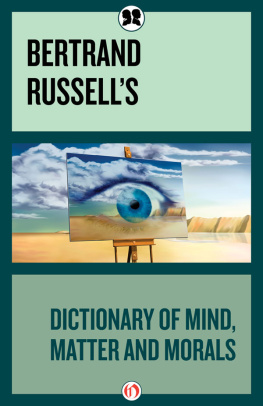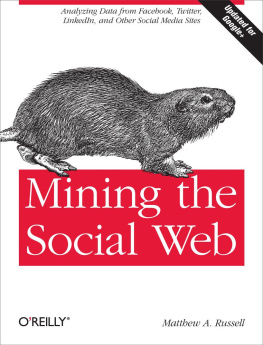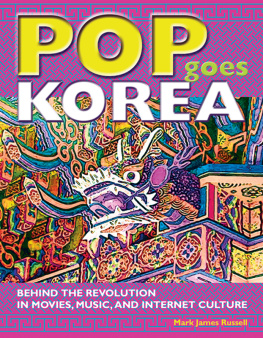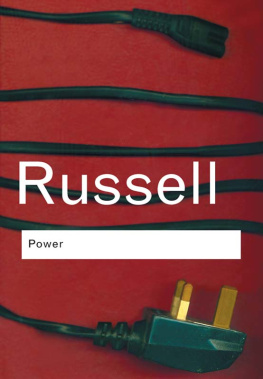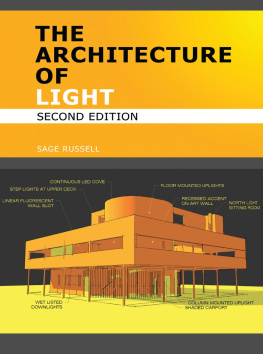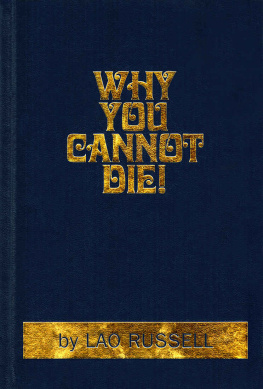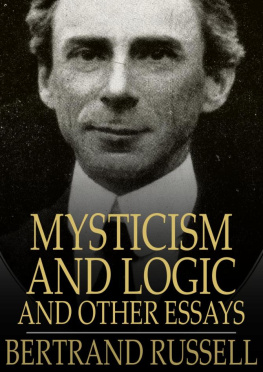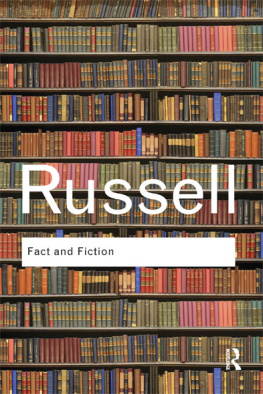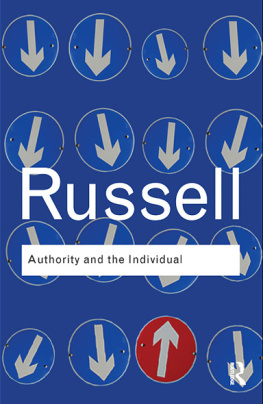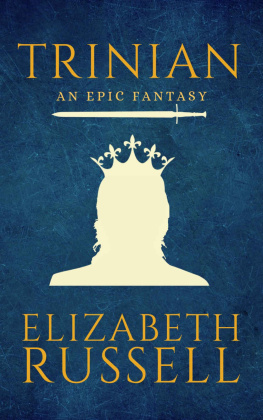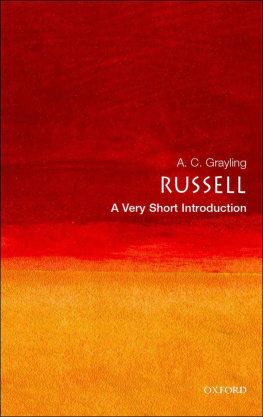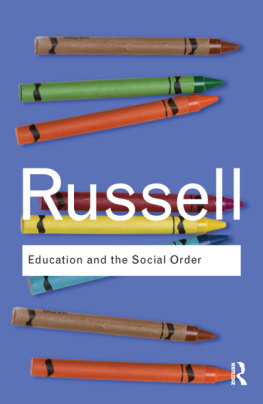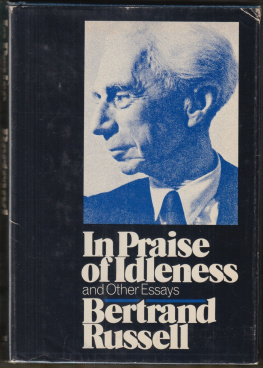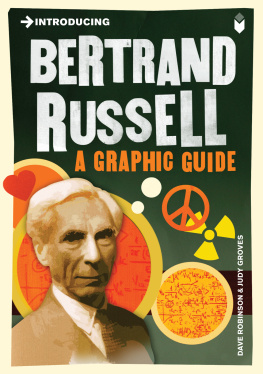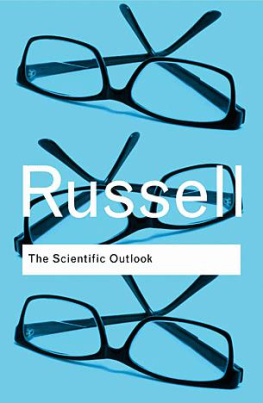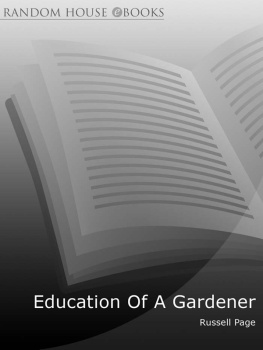Russell - On education [recurso electrónico]
Here you can read online Russell - On education [recurso electrónico] full text of the book (entire story) in english for free. Download pdf and epub, get meaning, cover and reviews about this ebook. City: Estados Unidos., Inglaterra, year: 2010, publisher: Taylor and Francis; Routledge, genre: Science. Description of the work, (preface) as well as reviews are available. Best literature library LitArk.com created for fans of good reading and offers a wide selection of genres:
Romance novel
Science fiction
Adventure
Detective
Science
History
Home and family
Prose
Art
Politics
Computer
Non-fiction
Religion
Business
Children
Humor
Choose a favorite category and find really read worthwhile books. Enjoy immersion in the world of imagination, feel the emotions of the characters or learn something new for yourself, make an fascinating discovery.
On education [recurso electrónico]: summary, description and annotation
We offer to read an annotation, description, summary or preface (depends on what the author of the book "On education [recurso electrónico]" wrote himself). If you haven't found the necessary information about the book — write in the comments, we will try to find it.
On education [recurso electrónico] — read online for free the complete book (whole text) full work
Below is the text of the book, divided by pages. System saving the place of the last page read, allows you to conveniently read the book "On education [recurso electrónico]" online for free, without having to search again every time where you left off. Put a bookmark, and you can go to the page where you finished reading at any time.
Font size:
Interval:
Bookmark:
On Education
Russell observes very kindly and carefully and records his observations with point and humour
Times Educational Supplement
There is no denying the interest and importance of this book
The Spectator
Bertrand Russell

London and New York
First published in 1926
by George Allen & Unwin Ltd.
First published in the Routledge Classics in 2010
by Routledge
2 Park Square, Milton Park, Abingdon, Oxon OX14 4RN
Simultaneously published in the USA and Canada
by Routledge
270 Madison Ave, New York, NY 10016
Routledge is an imprint of the Taylor & Francis Group, an informa business
This edition published in the Taylor & Francis e-Library, 2009.
To purchase your own copy of this or any of Taylor & Francis or Routledges collection of thousands of eBooks please go to www.eBookstore.tandf.co.uk.
2010 The Bertrand Russell Peace Foundation Ltd
All rights reserved. No part of this book may be reprinted or reproduced or utilised in any form or by any electronic, mechanical, or other means, now known or hereafter invented, including photocopying and recording, or in any information storage or retrieval system, without permission in writing from the publishers.
British Library Cataloguing in Publication Data
A catalogue record for this book is available from the British Library
Library of Congress Cataloging in Publication Data
A catalog record for this book has been requested
ISBN 0-203-86478-6 Master e-book ISBN
ISBN13: 978-0-203-86478-4 Master e-book ISBN
ISBN13: 978-1-135-22324-3 ePub ISBN
ISBN 10: 0415487404
ISBN 10: 0203864808 (ebk)
ISBN 13: 9780415487405
ISBN 13: 9780203864807 (ebk)
There must be in the world many parents who, like the present author, have young children whom they are anxious to educate as well as possible, but reluctant to expose to the evils of most existing educational institutions. The difficulties of such parents are not soluble by any effort on the part of isolated individuals. It is, of course, possible to bring up children at home by means of governesses and tutors, but this plan deprives them of the companionship which their nature craves, and without which some essential elements of education must be lacking. Moreover, it is extremely bad for a boy or girl to be made to feel odd and different from other boys and girls; this feeling, when traced to parents as its cause, is almost certain to rouse resentment against them, leading to a love of all that they most dislike. The conscientious parent may be driven by these considerations to send his boys and girls to schools in which he sees grave defects, merely because no existing schools seem to him satisfactory or, if any are satisfactory, they are not in his neighbourhood. Thus the cause of educational reform is forced upon conscientious parents, not only for the good of the community, but also for the good of their own children. If the parents are well-to-do, it is not necessary to the solution of their private problem that all schools should be good, but only that there should be some good school geographically available. But for wage-earning parents nothing suffices except reform in the elementary schools. As one parent will object to the reforms which another parent desires, nothing will serve except an energetic educational propaganda, which is not likely to prove effective until long after the reformers children are grown up. Thus from love for our own children we are driven, step by step, into the wider sphere of politics and philosophy.
From this wider sphere I desire, in the following pages, to remain aloof as far as possible. The greater part of what I have to say will not be dependent upon the views that I may happen to hold as regards the major controversies of our age. But complete independence in this regard is impossible. The education we desire for our children must depend upon our ideals of human character, and our hopes as to the part they are to play in the community. A pacifist will not desire for his children the education which seems good to a militarist; the educational outlook of a communist will not be the same as that of an individualist. To come to a more fundamental cleavage; there can be no agreement between those who regard education as a means of instilling certain definite beliefs, and those who think that it should produce the power of independent judgement. Where such issues are relevant, it would be idle to shirk them. At the same time, there is a considerable body of new knowledge in psychology and pedagogy which is independent of these ultimate questions, and has an intimate bearing on education. Already it has produced very important results, but a great deal remains to be done before its teachings have been fully assimilated. This is especially true of the first five years of life; these have been found to have an importance far greater than that formerly attributed to them, which involves a corresponding increase in the educational importance of parents. My aim and purpose, wherever possible, will be to avoid controversial issues. Polemical writing is necessary in some spheres, but in addressing parents one may assume a sincere desire for the welfare of their off-spring, and this alone, in conjunction with modern knowledge, suffices to decide a very large number of educational problems. What I have to say is the outcome of perplexities in regard to my own children; it is therefore not remote or theoretical, and may, I hope, help to clarify the thoughts of other parents faced with a like perplexity, whether in the way of agreement with my conclusions or the opposite. The opinions of parents are immensely important, because, for lack of expert knowledge, parents are too often a drag upon the best educationists. If parents desire a good education for their children, there will, I am convinced, be no lack of teachers willing and able to give it.
I propose, in what follows, to consider first the aims of education: the kind of individuals, and the kind of community, that we may reasonably hope to see produced by education applied to raw material of the present quality. I ignore the question of the improvement of the breed, whether by eugenics or by any other process, natural or artificial, since this is essentially outside the problems of education. But I attach great weight to modern psychological discoveries which tend to show that character is determined by early education to a much greater extent than was thought by the most enthusiastic educationists of former generations. I distinguish between education of character and education in knowledge, which may be called instruction in the strict sense. The distinction is useful, though not ultimate: some virtues are required in a pupil who is to become instructed, and much knowledge is required for the successful practice of many important virtues. For purposes of discussion, however, instruction can be kept apart from education of character. I shall deal first with education of character, because it is especially important in early years; but I shall carry it through to adolescence, and deal, under this head, with the important question of sex-education. Finally, I shall discuss intellectual education, its aims, its curriculum, and its possibilities, from the first lessons in reading and writing to the end of the university years. The further education which men and women derive from life and the world I shall regard as lying outside my scope; but to make men and women capable of learning from experience should be one of the aims which early education should keep most prominently in view.
Font size:
Interval:
Bookmark:
Similar books «On education [recurso electrónico]»
Look at similar books to On education [recurso electrónico]. We have selected literature similar in name and meaning in the hope of providing readers with more options to find new, interesting, not yet read works.
Discussion, reviews of the book On education [recurso electrónico] and just readers' own opinions. Leave your comments, write what you think about the work, its meaning or the main characters. Specify what exactly you liked and what you didn't like, and why you think so.

![Russell On education [recurso electrónico]](/uploads/posts/book/137691/thumbs/russell-on-education-recurso-electro-nico.jpg)
